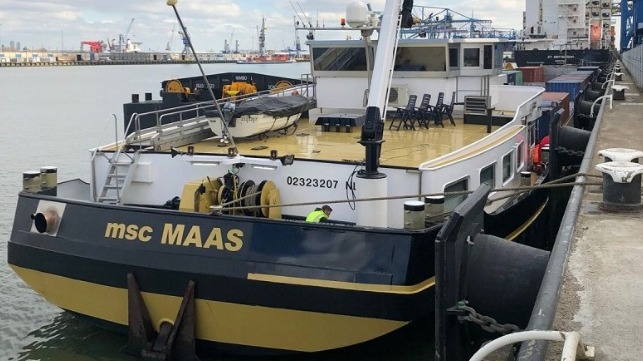Future Proof Shipping Expands its Fleet of H2-Powered Inland Feeders

Dutch startup Future Proof Shipping has bought two more small inland container feeders to expand its fleet of hydrogen-powered vesses. The FPS Rijn and FPS Waal will join the company's first ship, the FPS Maas, to become some of the world's first boxships converted to run on hydrogen - just in time to meet increasing European demand for green cargo transport.
"A very warm welcome to our two new ships. This development fits with our overall plan to convert as many vessels as we can to zero-emissions as soon as possible," said CEO Richard Klatten.
Future Proof Shipping is hoping to gain market share in inland, EU shipping by offering a no-nonsense, full zero emissions product from the start. The firm says that it plans to use green hydrogen, reducing emissions from operations by about 2,000 tonns per annum (when compared with standard MGO fuel).
It is already taking bookings for its first commercial voyage on the Maas in 2023. The first route will serve terminals in The Netherlands and Belgium. Project partners include terminal operator BCTN and Holland Shipyards Group, which will be handling the conversions.

that matters most
Get the latest maritime news delivered to your inbox daily.
The conversion project for the first vessel is under way, supported by funding from the Interreg North Sea Region Programme, the Port of Rotterdam and the Rijksdienst voor Ondernemend Nederland. The Port of Rotterdam is also a prominent sponsor of green-hydrogen supply projects, including both local production and industrial-scale imports.
Future Proof Shipping is not the only firm intending to operate an H2-fueled inland container vessel in the region. The firm says that two other established players - HTS Group and NPRC - are aiming to deploy inland ships on a route between Rotterdam and Cologne by 2024, with support (including support for fueling infrastructure) from the Belgian government.
